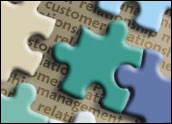
As if the airlines haven’t had enough challenges since Sept. 11, 2001, British authorities were compelled to introduce a new one at the beginning of August. In addition to weathering economic downturns, volatile bankruptcies and merger flirtations, airlines now must comply with new carry-on restrictions due to a foiled terrorist plot.
The U.S. Transportation Security Administration effected new measures on Aug. 10, following the revelation that terrorists were plotting to use bottled liquids to blow up planes in flight. American carriers braced themselves for the worst as their passengers spent more time in airport security checks and disposed of lotions, lipstick — even bottled water.
However, because airlines have detailed databases on frequent travelers, they were able to control the situation before it developed into a logistical crisis. Northwest Airlines, Minneapolis, sent 60,000 e-mails to members of its WorldPerks frequent-flier program on Aug. 10, the start date for the new boarding rules. The messages informed the carrier’s best customers of the changes in TSA requirements.
Also, nearly 15,000 customers received updates on the status of their flights through Northwest’s “My NWA Info” service, which proactively notifies customers of changes to their flight status through the customer’s preferred form of delivery — e-mail, mobile device or telephone.
In order to be completely thorough, Northwest’s auto-dialer telephone system spent Aug. 10 and 11 calling 25,000 customers, advising them of the new TSA procedures.
Faster Lines for Frequent Fliers
Northwest’s comprehensive effort leverages one of the benefits of using CRM in the travel industry. Loyalty card databases such as that for Northwest’s WorldPerks program are mined primarily for marketing purposes and extra-special treatment of the hotel-is-home business travel set.
Still, there is the implicit promise that a consumer’s exchange of personal information will generate relevant communications. Messages about new security measures were meant to save travelers time in the airport.
“There has been a lot of recent activity among airlines to allow members to personalize very detailed profiles. This includes alert preference registration … and detailed control over the channel and nature of communications between the brand and the member,” says Kelly Hlavinka, director of Colloquy, an active monitor of member communications in the travel space.
Airlines began implementing other recognition-based benefits for their frequent fliers even before the latest terror plot upset. “Many airlines are allowing frequent travelers expedited security lines at their largest airports,” says Tim Winship, publisher of FrequentFlier.com. Where airlines have hubs, they also have greater control over airport operations.
“These have been in place for a couple of years,” he tells CRM Buyer. They amount to a significant value-add to someone’s membership in a frequent-flier program and are an incentive for travelers to earn elite status in these [CRM] programs.” In most cases, only top-tier members may enter special lines through security.
As CRM technology improves and airlines face new obstacles to profitability, they are developing more ways to make the airport experience more streamlined and efficient for their identifiable best customers, Winship says.
Special services that target these fliers deliver a branded experience, influencing future travel decisions. “It’s a matter of how creative they can be within airport constraints,” he notes.
Where CRM Stagnates
In general, however, airlines have trouble picking out their most profitable customers. Their loyalty programs are designed to rank the most frequent fliers as the “best” customers.
Because frequency correlates somewhat with profit, Winship recommends that every airline “at the very least, identify its most frequent customers and allocate out to them whatever extra services it can in order for those customers to have a better airport experience.”
There’s room for improvement, though. Midwest Airlines, based in Milwaukee, acknowledges this. Midwest didn’t react to the TSA restrictions update with communications, says Steve Mathwig, director of loyalty marketing, because it didn’t receive complaints from its Midwest Miles customer base and because its CRM solution has evolved little in the past few years.
“There are times we will draw information based on where they fly and proactively e-mail people,” he tells CRM Buyer. When a Best Care Club will close for a weekend, for example, Midwest alerts members who use that executive lounge often. Other than that, CRM innovation at Midwest Miles is confined to the recently introduced Executive Program top tier queue at the call center.
Both Winship and Hlavinka see room for improvement.
“Despite data collection on preferences, Colloquy believes the airline industry has missed key opportunities,” Hlavinka tells CRM Buyer. “With the recent security alert, none of the e-mails or mailings or Web sites provided readily apparent custom messaging about baggage check-in tips for premier members or additional program benefits for elite members.
“While some initiatives may exist, the elite member communications that Colloquy monitors do not reflect an understanding of how the recent security changes have rocked the frequent traveler’s world,” she continues. “With the amount of customized messaging opportunities these companies now have — Web messaging, e-mail messaging, digitized printing and mobile communications — to make their elite travelers feel valued, this void of explicit communication is a miss, in our opinion.”
Winship suggests the same, adding that CRM use by airlines should be much more aggressive. “If nothing else, airlines like Southwest and JetBlue, which have traditionally used their frequent-flier programs rather grudgingly, are going to be forced to be more aggressive [with CRM] as competitive pressure is brought to bear by the major airlines.”
“A basic premise of cultivating a dialogue with best customers is actively showing you are listening,” Hlavinka concludes.




















































